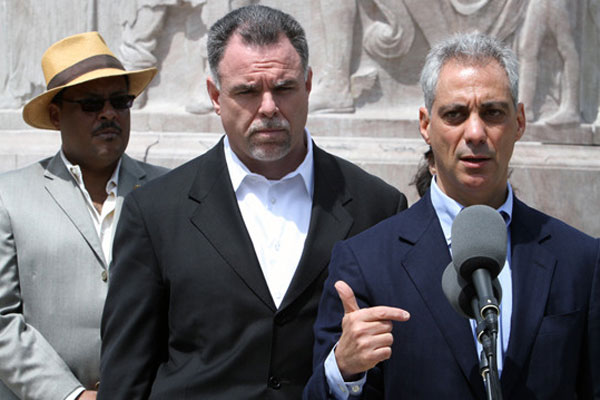
The other day Garry McCarthy said that Chicago’s 911 system is "kind of broken," which caused some surprise that the city doesn’t always have enough cops available to respond to shootings. But if you look at the numbers, it’s less surprising:
At his City Council confirmation hearing, Gary Schenkel said it’s high time that Chicago alter an outdated dispatch policy that sends police officers to respond to 70 percent of 911 calls, compared to 30 percent in other major cities.
Which is about what was reported in 2009:
"We as a department dispatch approximately 68 percent of the calls we receive at the 911 center. Look at major cities throughout the United States. They’re dispatching at about 30 percent," Dugan said then.
Which was identified as a problem in 2002 (PDF):
Keeping beat units in place was central to turf orientation but was difficult because Chicago responds to a high percentage of 911 calls. A management study revealed that the department had to hire more police to respond to dispatches while keeping officers on their assigned beats. For several years, the department’s antiquated 911 and radio system made it difficult to ensure that beat teams were dispatched to calls within their beat, and useful information about this was difficult to assemble.
And though it doesn’t give numbers, the CPD was complaining about it to itself in a 1993 strategic plan (PDF):
And as police officers’ time became managed almost entirely by 911 calls, their ability to engage in meaningful proactive law enforcement activities nearly evaporated. The very technology that O. W. Wilson and others introduced to help professionalize law enforcement—squad cars, radios, 911 systems, and the like—ended up isolating officers from the citizens they were sworn to serve and protect. Ironically, this isolation from the community cut police off from a critical source of information and support they needed to succeed under the traditional model.
So it’s been broken for awhile. What I haven’t been able to find is a good explanation. The best piece I’ve found is a March report from Fox Chicago/BGA report, in which the deputy OEMC director notes that "we’re still probably the only major city in the country that still responds to calls that other cities do not respond to." It at least gives one concrete example:
Police point out that they currently dispatch a squad car, often with two officers, to fill out reports for simple thefts and garage break-ins.
McCarthy’s comments about our broken 911 system come at a time when the Mayor is looking to cut $190-$230 million from the CPD. His candid admission will likely get talked about in terms of the number of cops on the beat (long a controversial issue) and the number of excess 911 calls (the reason for the 311 alternative). But it would appear that the city’s determination to respond to such a high percentage of 911 calls may have to change.
Photograph: Chicago Tribune


